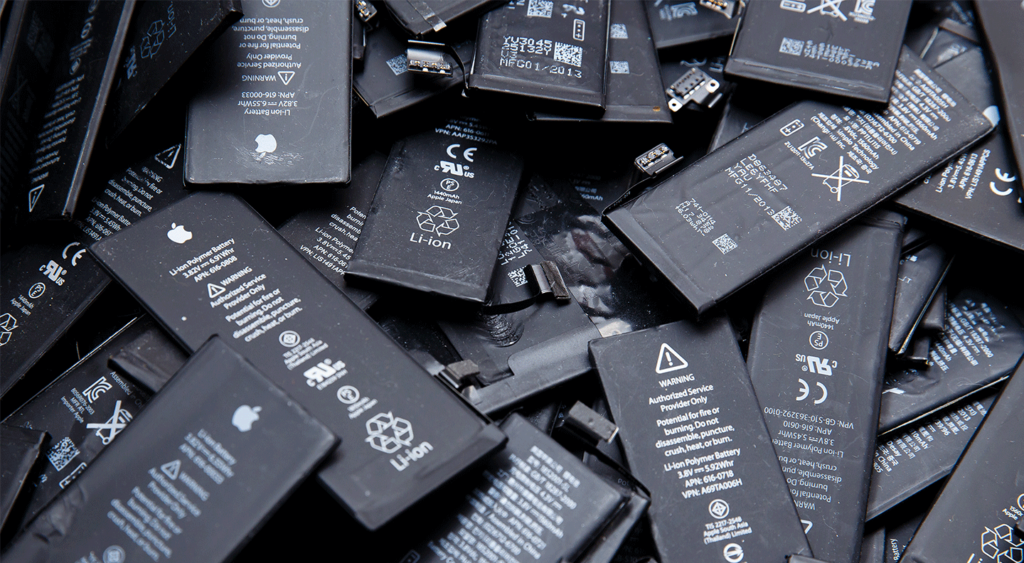The EU just passed a law ( in June 2023) to crack down on smartphone makers and make them more environmentally-friendly, while protecting consumers: it wants EU manufacturers to offer easily replaceable phone batteries. Already a year ago, the European Commission( EU) imposed the use of USB-C plugs on a large number of electronic devices, including mobiles, tablets, connected watches and portable cameras, and it’s not stopping there to push for sustainability. To increase the durability of mobile products, a new directive has been adopted, governing not only the replacement of batteries, but also their production and recycling. The directive applies to smartphones, but also to electric cars, motorized bicycles, two-wheelers, and even wearables.

Reading on Electronic Waste from Smartphones and Batteries:
From the BBC, on the difficulty of recycling Lithium-ion batteries today.
From the BBC too, on the 5.3 billion smartphones thrown away worldwide in 2022.
In the phone sector, batteries have not been removable for most models since the 2010s. They can, of course, be removed, but this requires a number of rather delicate manipulations that call for the right tools and a certain amount of know-how. As a result, users are often obliged to call in a professional. To remedy this situation, but also to limit battery waste and the demand for batteries, which “is expected to increase 14-fold between now and 2030…”, the European Parliament worked for over two years before deciding on June 14 to ban Smartphone batteries that are difficult to remove or replace oneself.
We don’t yet have more details on this new directive, but what is certain is that from now on, cell phone manufacturers will have to allow easier access to the internal components of their devices. Devices will also have to be easy to dismantle and recycle. The aim is to improve the repairability of mobile electronics, increase battery life and, of course, reduce waste by encouraging recycling and specifying the carbon footprint of batteries.
But it’s not just smartphones that are affected by this European directive. It also affects batteries for electric cars and bikes, e-scooters, computers, tablets, Bluetooth headsets, music players, wireless speakers and all devices with batteries over 2 kWh.
The EU Law wants more Recycling of Phone and Car Batteries and A Circular Production
Did you know that only 5% of Lithium-Ion batteries ( thise on phones and electric vehicules) are recycled worldwide? Brussels wants to move towards a more environmentally-friendly circular economy by imposing a minimum rate and recycling of certain metals contained in used batteries.
The EU has announced a take-back percentage of 51% in 2028 and 61% in 2031 for light electric vehicles, and 45% in 2023, 63% in 2027 and 73% in 2030 for smartphone batteries. It also stipulates in its regulations that at least 6% of the cobalt, 85% of the lead, 6% of the lithium and 6% of the nickel used in used batteries must come from recycling.
Lead negotiator Achille Variati, an Italian MEP from the S&D group, believes that the EU imposing easily replaceable phone batteries “could become a benchmark for the entire global battery market”. He adds: “We have agreed on measures that greatly benefit consumers: batteries will work well, be safer and easier to remove”. “Our overall aim is to build a stronger European recycling industry, particularly for lithium, and a competitive industrial sector as a whole, which is crucial in the coming decades for our continent’s energy transition and strategic autonomy.”
Want to know more about sustainable technology? Discover the Digital Collage workshop in Canada !







